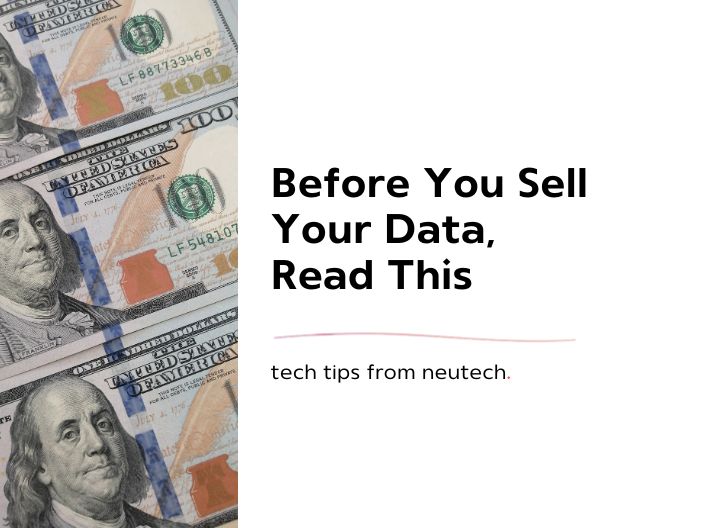Before You Sell Your Data, Read This

When I sent out a recent newsletter about how to monetize the data you’re already gathering, a bunch of founders reached out with a follow-up question: “Okay, but what about data privacy?” That’s the right question to be asking.
Selling or repurposing data isn’t just a legal issue; it’s a trust issue. And if you don’t handle it carefully, you risk losing both your customers and your reputation, even if you’re technically within the rules.
We see this all the time. Startups get excited (rightfully!) about the idea of monetizing data. But they forget that just because you can doesn’t mean you should. The real question is: can you do it ethically and responsibly?
Let’s talk about how to answer that.
The First Rule: Don’t Break the Relationship
If you’ve built any kind of product with real user traction, then you’ve already done the hardest part: you’ve earned your users’ trust. That trust is incredibly valuable, and it can vanish fast if people feel like their data is being misused.
When we work with clients, especially ones we’ve known for years, we always start with this: What would your users expect you to do with their data? If the answer is, “definitely not sell it to someone else,” then we need to pause.
Even if your Terms of Service technically allow something, it’s worth asking: Would I feel okay explaining this to a customer face to face? If not, there may be a better way to get value from the data without eroding the relationship.
Know the Difference Between Raw Data And Insight
The biggest misunderstanding we see is the belief that all data is either sellable or not; it’s more nuanced than that.
Let’s say your platform tracks when and where people open your app. Selling a list of names and locations? Huge red flag. But aggregating that information into anonymized trends like, “This neighborhood sees the most engagement between 6–8pm”? That’s not only safe, it might be valuable to other businesses.
In other words, sell trends, not people. That’s a much more defensible and ethical way to generate value. We often help clients find this middle ground: taking the data they have and turning it into patterns and products that are useful without being creepy.
Get Serious About Data Accuracy And Value
Another thing we tell founders: don’t sell garbage. If your dataset is inconsistent, incomplete, or out of date, then selling it doesn’t just hurt your reputation, it can backfire legally. A buyer might come back to you asking for refunds, or worse, with legal action.
So before you think about monetization, ask:
- Is this data clean?
- Is it current?
- Is it actually useful?
If you’re not sure, a lightweight audit can go a long way. We often help teams vet their own data before they ever think about packaging or selling it.
This kind of due diligence shows potential buyers (and your own team) that you’re treating data as a real asset and you’re taking responsibility for it.
Understand Consent and Compliance
Let’s get this out of the way: if your users haven’t consented to their data being used in a specific way, don’t use it that way.
Yes, the legal landscape can be complex and, yes, there are gray areas. But in our experience, the companies that get this right ask three things:
- Did users know what data was being collected?
- Did they agree to how it would be used?
- Can we explain this clearly if challenged?
And if the answer to any of those is “I’m not sure,” then it’s time to review your privacy policy and consent flows. Clean, compliant, and clearly communicated data practices aren’t just nice to have, they’re a baseline.
Data Ethics = Business Strategy
Being ethical about your data doesn’t mean leaving money on the table. It means building long-term value in a way that doesn’t backfire later.
In fact, some of the most interesting data monetization plays we’ve seen—like helping clients repackage anonymized trend reports or develop internal tools they can later white-label—only exist because they started from an ethical foundation. And it’s a great way to create another revenue stream in this volatile economy!
If you’re trying to think about how to use your data well, start here:
- Focus on insights, not individuals
- Make sure it’s accurate and useful
- Stay on the right side of consent and transparency
Your data has value, but only if you use it right.